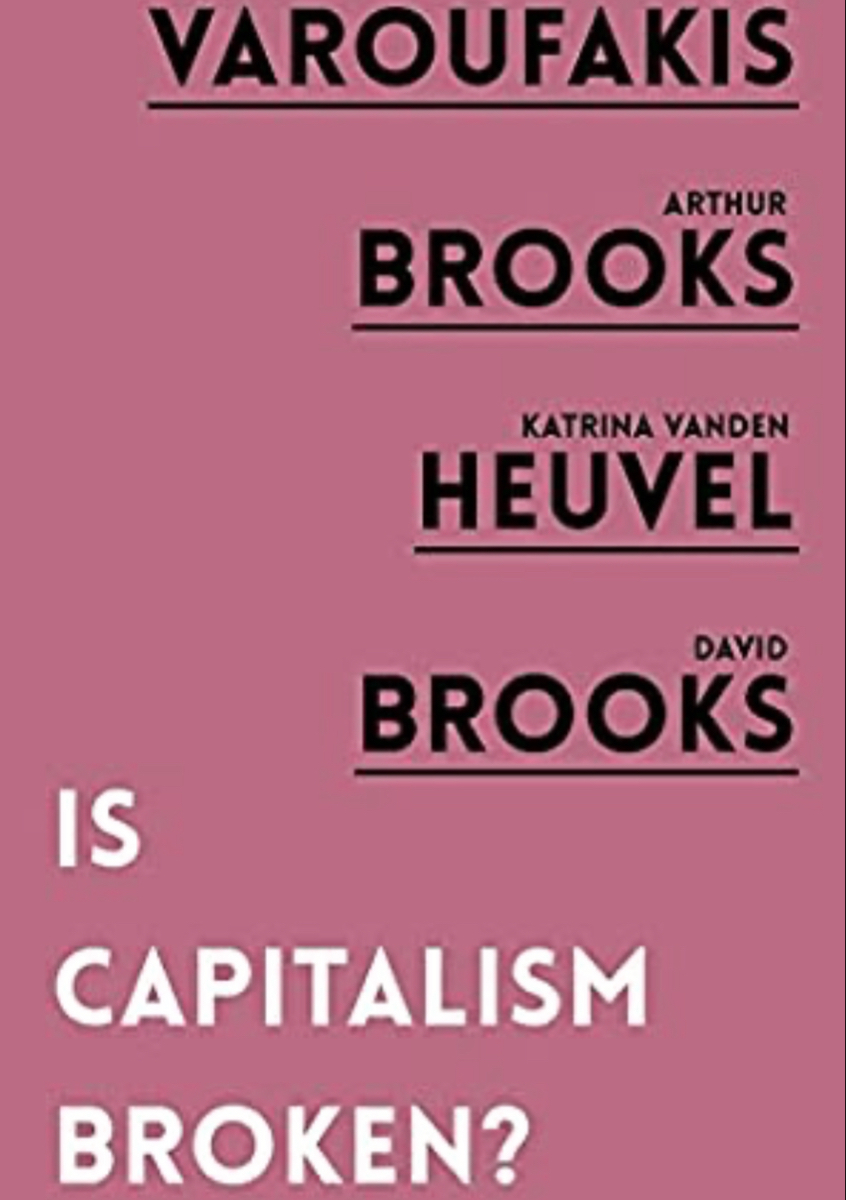 |
《Is Capitalism Broken?》
|
|
作者: Yanis Varoufakis
|
|
|
出版: One world
|
|
|
出版时间: 2020
|
The poor need to pull them out of poverty, and you need the poor to pull you out of hell.
第94页 · 2023-04-27
These are times for greatness, not for greed; a time for idealism, not ideology; and a time not just for compassionate words, but for compassionate action.
第93页 · 2023-04-27
The problem is not that we havd a small state. The problem is that we have a state that is always in the pockets od fhe ones who were creating the crisis, who were undermining the society’s sustainability, and economic sustainability.
第88页 · 2023-04-27
We need to think hard about the purchase of political power. The privatization of wealth and the socialization of risk come partly from the power that plutocratic elements have had in buying and rigging and writing the rules.
第75页 · 2023-04-27
We have a situation of “short-term-ism” — CEOs who are terrified pf the two or three financial companies that control through pension funds the share value that determines their bonuses.
第71页 · 2023-04-27
Yanis’s main objection to capitalism is that it turns out to be fundamentally undemocratic. And he’s given many examples. The trouble is that that’s not capitalism. That’s a failure of capitalism. All of the predations that people give of capitalism are the equivalent of the Boston Red Sox blowing up the Yankees’ bus on the way to the game. That’s not competition; that’s shutting competition down.
第62页 · 2023-04-27
there are three major ways U.S. capitalism is broken: it is fuelling extreme inequality; it is consuming democracy; and it is destroying nature.
And we’ve lived through four decades of stagnant wages. We still have stagnant wages and staggering levels of upward flows of wealth that have super-charged the existing racial wealth divide and other inequalities rooted in gender and geographic differences.
And we’ve lived through four decades of stagnant wages. We still have stagnant wages and staggering levels of upward flows of wealth that have super-charged the existing racial wealth divide and other inequalities rooted in gender and geographic differences.
第54页 · 2023-04-26
And really existing capitalism is profoundly anti- democratic. We have captains of industry and masters of finance who accumulate war chests with which they effectively buy politics, buy campaigns, and capture regulators.
第49页 · 2023-04-26
We live in a really existing capitalism, which is against free markets. It has been against free markets since the invention of electromagnetism, which gave rise to the Edisons, the Fords, the grids, the network companies, the mega-companies, the big business cartels that were fantastic at usurping states, replacing markets, and fixing prices against the interest of their own supposed ideology.
第48页 · 2023-04-26
China proves that there is no association between capitalism and democracy. And not just China; think of Britain in the late-eighteenth and nineteenth centuries. There was no democracy. Liberalism, remember, was the opponent of democracy. The great liberal thinkers like John Stuart Mill opposed democracy. For them, giving the demos the opportunity to decide goes against liberal principles and against the free markets. So, this association of liberalism with democracy is a very recent thing. And it’s not doing very well.
第17页 · 2023-04-25
the market was never designed to provide public goods; the market was only designed to provide private goods. The environment is a public good. The market will always create profits for the corporations by depleting natural resources, to which the market will always assign a zero price.
第16页 · 2023-04-25
after 1971, the United States went from being the surplus country, the country that effectively was a creditor nation of the world, to the deficit nation of the world. And those deficits were instrumental in sucking into the United States the net exports of Canada, Japan, Germany, and later China, and creating what we call financialized globalization, which then went into a major spasm in 2008. So, in a sense, we are all children of a permanent crisis that began in 1971.
第14页 · 2023-04-25
Gallup did a poll last year that showed many younger people think of socialism as meaning equality more than state control or ownership of the means of production. So what socialism means to a younger generation is up for grabs. But it’s an interesting moment.
第9页 · 2023-04-25
The idea that you can’t have a vibrant, innovative, free-enterprise system with an active government is belied by the history of this nation. Some of the most productive periods in our country’s history came in the aftermath of the Second World War. Sure, there were racial inequalities, but workers had more power, corporations were thriving, there was more equality, the ratio between CEOS’ pay and workers’ was maybe 26 to 1, and now it’s 350 to 1. So, I think you can have a vibrant free-enterprise system with regulation that allows for empowerment of working people and shared prosperity.
第6页 · 2023-04-25